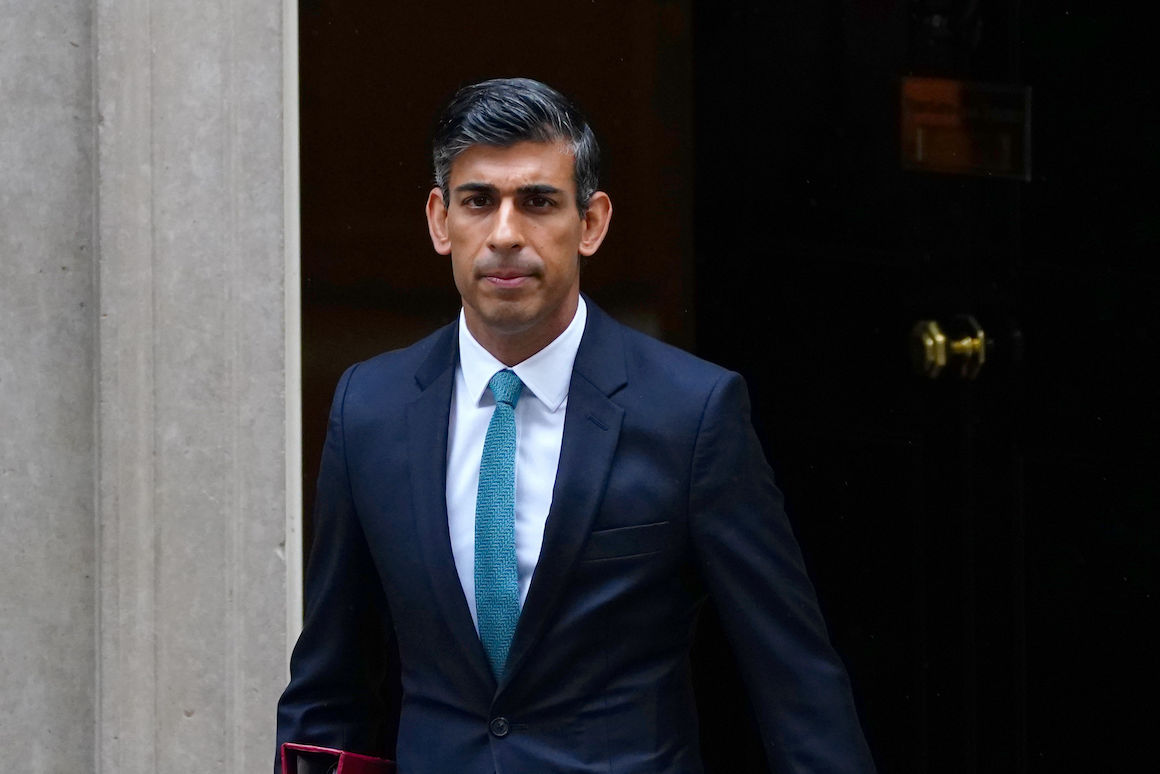There was a curious apolitical quality to the budget this week. Stood before the commons, a visibly nervous Jeremy Hunt announced the government’s latest fiscal blitz to an atmosphere of detached demur. There were hints of a new activist tilt on tax (see the lifetime pensions allowance rejig for instance), but the steady and deliberate leaks had successfully undermined the usual budget buzz.
The budget’s conscious steadiness bore the stamp of the prime minister, who has worked at pace to exorcise any excitement from British politics in recent months. As Hunt doggedly plodded through his four “Es” — on education, employment, enterprise and “everywhere” — Conservative and Labour MPs sat in a mood of mutual malaise.
Perhaps the most notable aspect of the budget was its open plundering of Sir Keir Starmer’s policy laboratory. The headline announcements on 30 hours-a-week of free childcare for one- and two-year-olds, the three-month extension of the £2,500 energy price guarantee and action on pre-payment meters are all prominent Labour priorities. In all, the budget is perhaps the clearest indication yet that fiscal policy is being formulated on firmly bipartisan terms.
But Hunt’s budget burglary didn’t stop with childcare and energy support. The chancellor deepened British politics’ devolutionary consensus with newly-announced “trailblazer” deals for the West Midlands and Greater Manchester Combined Authorities. With Starmer’s Take Back Control Bill promising to offer communities sweeping new powers over transport, employment provision and housing, Hunt was standing firm: his party would not be giving up its levelling up thought leadership without a fight.


Tory tanks also rolled onto Labour’s lawn on energy strategy. Starmer may have thought he was carving a new ideological niche with GB Energy, a new patriotic, publicly-owned green investment firm. But at the budget, Hunt stepped up the government’s net zero offering with Great British Nuclear, an attempt to reclaim ground on energy security and flag-waving.
In the United States, bipartisanship is viewed on rigidly moral terms. Joe Biden’s Presidency is openly valorised as a vessel for more traditional, less adversarial politics — a necessary cleansing experience after the rigours of Trumpism. The essential Biden pitch is that America at its best is an anti-political polity, one which operates beyond the embittered churn of the electoral cycle. Bipartisanship, built on shared ideals, is sold as the motor of American progress. It’s good for the US’ “soul”, Biden insists.
British politics has thankfully never bought into such glib anti-political virtuosity. In the commons, opposition MPs face the government, allowing them to look ministers in the eye as they chunter unnervingly. And our recent bi-partisan tilt is no different. The policy plundering of the budget was ultimately founded on deeply adversarial, self-interested terms.
Take the government’s childcare announcement. Labour has for some time now been pressing to run the next election on radical early years sector reform. The strategy, spearheaded by shadow education secretary Bridget Phillipson, is a conscious attempt to mirror the Australian Labor Party’s success on this area. The party won Australia’s 2022 general election on a promise of subsidies of up to 90 per cent on childcare costs.
Speaking to the centre-right think tank Onward earlier this month, Phillipson highlighted that in the 100 most marginal Conservative seats in England, about a quarter of the electorate was comprised of families with at least one child aged under 1. The electoral calculation is hardly concealed.
In this way, the Hunt’s childcare announcement was intended in part to undermine Phillipson’s work. The new proposals will mean the government is far less exposed on childcare come 2024; the early years sector is no longer a political front on which Labour is destined to win.
On a deeper level, the government’s policy pilfering will likely problematise any escalation in Sir Keir’s rhetoric as we build to an election. In his Budget response, a torrid job for the opposition leader under any circumstances, Starmer was left to complain that the Conservatives had stolen his policies on an energy price guarantee, an energy windfall tax and on pre-payment meters. In the end, he was left “welcoming”, not rubbishing, government policy.
There is, of course, some short-term advantage to be found for Labour in such positioning. Sir Keir can extoll his party’s thought leadership and chastise the government for its visionless “sticking plaster” approach. Still, the longer-term challenges are plain. For now Sir Keir does not only need to come up with popular, sensible policies — but popular, sensible policies that are insusceptible to government pickpocketing.
This fact creates some difficult incentives for Sir Keir as he looks to sharpen and differentiate his party’s offering ahead of 2021. To bolster current positions on the House of Lords reform and the “Green Prosperity Plan” (which you would suspect Sunak will steer clear of), the Labour Party may now be forced to radicalise in other areas to stand out.
But the biggest problem for Labour right now is that Rishi Sunak is increasingly being perceived as a competent leader. A significant win in Northern Ireland, coupled with potential inter-party success on “small boats”, pay disputes and the budget, is creating a reputation of delivery. So as Sir Keir huddles alongside the PM in the voting lobby on Wednesday, endorsing his solution to the NI Protocol impasse, the Labour leader might just ask himself: who is Britain’s banal bipartisanship really benefiting?

